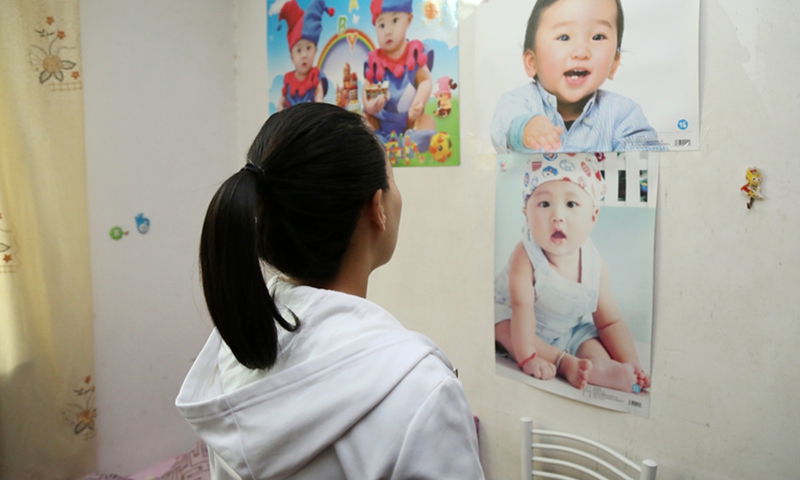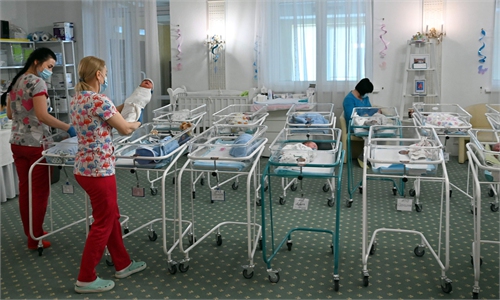Medical company in East China’s Shandong under investigation for alleged illegal surrogacy and child trafficking

A surrogate mother looks at baby posters in Shanghai. Photo: IC
A reproductive medical technology company from Weifang in East China's Shandong Province is under police investigation on suspicion of operating an illegal surrogacy business and child trafficking.
The suspect surnamed Zhu was the head the reproductive medical technology company on paper but is alleged of overseeing an illegal surrogacy business and infant trafficking in private.
A secret investigation conducted by The Paper with the help of China's renowned undercover anti-trafficking advocate Shangguan Zhengyi exposed the underground trading chain dominated by human trafficking gangs who trade newly born infants who are often abandoned by their biological parents. A newborn baby can be sold from tens of thousands of yuan to hundreds of thousands yuan.
Zhu was apprehended by the local police on Monday afternoon and the public security bureau of Weifang has set up a special task force to investigate into the case, Shangguan told the Global Times on Monday.
Shangguan, the anti-trafficking advocate, posed as a buyer and became familiar with the infant trafficking group on WeChat for a year before he got the message in June that he could probably obtain an infant girl.
According to Shangguan, the infant trafficking gang is made up of about 100 members across several provinces. New members join the group have to specify their needs and comply with regulations of the group.
Shangguan pretended to be an infertile woman in search of a daughter. Zhu contacted Shangguan as a middleman to help Shangguan buy a baby.
Usually, the middleman will help the buyer look for sellers who either sell their own babies or sell the babies they give birth to as surrogate mothers.
The criminal gang will also help buyers prepare the certificates necessary for the newborn babies.
Shangguan found that the business is pretty attractive to some young women who become pregnant unexpectedly and gave birth with no formal record. These women using this network do not need to pay for an abortion and are able to find a home for their child.
The trade is usually complete as soon as the baby is born and is handed over to the buyer on the day when the surrogate mother gives birth.
According to Zhu, some doctors and nurses from some third-tier hospitals including W.F. Maternal And Child Health Hospital and Weifang Hospital of Traditional Chinese Medicine were also involved in the business.
Zhu's acquaintances at these hospitals would not check the surrogate mothers' identification very carefully to help cover the illegal business.
According to Zhu, some female students were offering surrogacy service for as much as 950,000 yuan ($147,038) per child. The entire process was run through a network of hospitals across the nation.
Zhu claimed that she used to be a teacher before she became a middleman involved in the network. She claimed to be infertile and entered the surrogacy industry by chance.
According to China's criminal laws, any act of abducting, kidnapping, buying, trafficking in, transporting or transferring a woman or children for the purpose of selling shall constitute the crime of abducting women or children. Suspects charged with the crime of abducting women or children can be sentenced from five years in prison to at the extreme end, face the death penalty.


